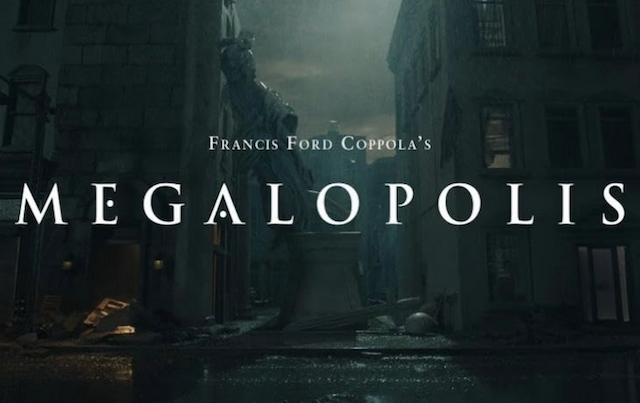
Is Megalopolis turning into a Megaflopolis?
Despite the fact that Francis Ford Coppola’s new movie will kick off the Cannes Film Festival in May, and despite the fact that Coppola has created some of the most iconic films of the past half century, including the three Godfather films, Apocalypse Now, and Bram Stoker’s Dracula, the people holding the purse strings are yet on board.
It’s being widely reported that the epic film is having trouble attracting the money needed to bring the project to the next level. This week, The Hollywood Reporter declared that Coppola’s “high-profile yet secretive film is having issues securing a distribution deal—and it’s seemingly all to do with the film itself and its marketability.”
Hoping to attract a distribution deal, the 84-year old Coppola screened the film in Los Angeles on March 28 to industry bigwigs that included Godfather star Al Pacino. But the effort failed to raise the money that Coppola was hoping for. THR reported that Universal has “already tapped out of the bidding” and quoted another source as saying “I find it hard to believe any distributor would put up cash money and stay in first position to recoup the P&A as well as their distribution fee.”
One studio mogul at the screening, quoted anonymously, called the movie “some kind of indie experiment.” Another said “Does it wobble, wander, go all over the place? Yes. But it’s really imaginative and does say something about our time. I think it’s going to be a small, specialized label [that picks it up].”
It’s been reported, however, that IMAX might be interested in helping finance the rollout, though they too expected the film to be more commercial and conventional. Coppola started work on Megalopolis in 1983, even selling his wineries to raise part of the $120 million he spent on the project. The plot pivots on two competing concepts for the rebuilding of the annihilated city, one by a visionary architect (played by Adam Driver) and the other by its more down-to-earth mayor (played by Giancarlo Esposito).
Megalopolis thus deals with apocalyptic events that pose an existential threat to American culture. By focusing his lens on the accidental destruction of New York City and the competition to rebuild it. Coppola aimed to craft a dramatic piece that echoes the fall of Rome, as suggested by visuals that include Caesar haircuts and motifs from classical architecture.
Responding to the naysayers, Coppola was quoted as saying that he faced the same skepticism more than 40 years ago when he was making Apocalypse Now about the Vietnam War. As he told The Daily Beast, “There were very contradicting views expressed, but the audience never stopped going to see the film, and to this day Apocalypse Now is still in very profitable distribution.”
“I am sure this will be the same situation with Megalopolis,” he added. “It will stand the test of time.”
Check out more of Edward’s articles

